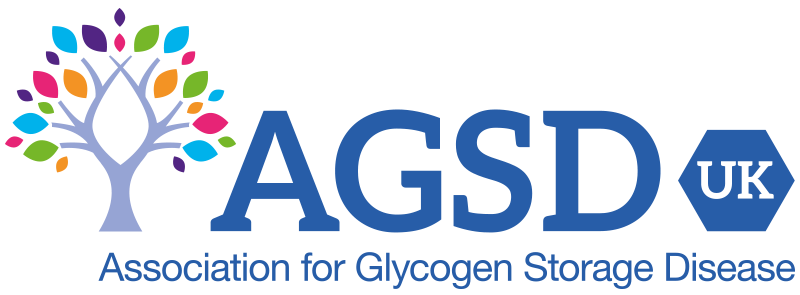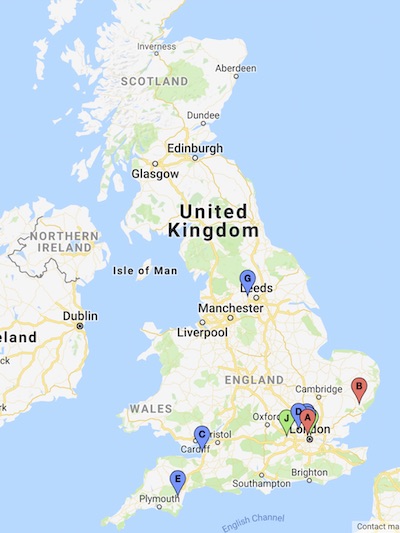We have a coordinator to offer support, an annual conference, a social media channel and information cards for your pocket.
Coordinator for Tarui disease (GSD7)
We think there are probably less than 10 people diagnosed with GSD7 in the UK, but that the number may well grow now that genetic testing is often used to investigate unexplained episodes of rhabdomyolysis. At present there is not much to be done, but we have a coordinator, Kelly, who has the condition herself.
This voluntary role is to: answer questions from people affected by the condition; represent their interests to the AGSD-UK Board of Trustees; liaise with and assist the clinic in London and other organisations involved with GSD7; organise the GSD7 workshop at the annual conference; and approve any use of GSD7 funds held by AGSD-UK.
People who are newly diagnosed with Tarui disease usually have a great number of questions and the coordinator will try to answer these. Sometimes it is appropriate to put people in touch with each other. This is only ever done with the advance approval of both parties.
The GSD7 coordinator can be contacted by sending us a message.
Map of people with other very rare GSDs
We maintain a map of people in the UK affected by the other very rare GSDs, including GSD7, to help facilitate finding peer-to-peer support when it is desired. You can ask to have your name and a choice of contact information added to the map.
Go to a new tab with the map page for more details, or contact the Coordinator.
Specialist Care Advisor
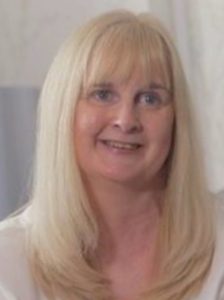 AGSD-UK specialist care advisor Elizabeth Davenport is available to help with all aspects of non-clinical support. She can offer a listening ear plus information and advocacy around a whole range of issues, including education, your rights at work, social care, transport, housing, and community grants, so you can get the support and services you need.
AGSD-UK specialist care advisor Elizabeth Davenport is available to help with all aspects of non-clinical support. She can offer a listening ear plus information and advocacy around a whole range of issues, including education, your rights at work, social care, transport, housing, and community grants, so you can get the support and services you need.
Don’t hesitate to contact Elizabeth by email
Workshops at annual conference
At the AGSD-UK annual conference, we welcome people with a GSD7 to the McArdle’s (GSD5) workshop as the conditions are so similar. As the number of diagnosed GSD7 people grows they will no doubt start their own workshop at the conference.
These workshops usually include a patient-focussed session when we talk about issues we have in common, share experiences and offer each other helpful tips. This is an excellent opportunity for people to meet each other; many stay over to get together socially on Saturday evening.
Benefits Advisor
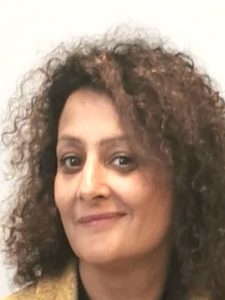 AGSD-UK benefits advisor Zainib Hussain can help with applications and appeals for benefits such as universal credit, personal independence payment, disability living allowance/child disability payment, employment support allowance and carer’s allowance.
AGSD-UK benefits advisor Zainib Hussain can help with applications and appeals for benefits such as universal credit, personal independence payment, disability living allowance/child disability payment, employment support allowance and carer’s allowance.
To discuss what you might be entitled to and for help with any claims, just email
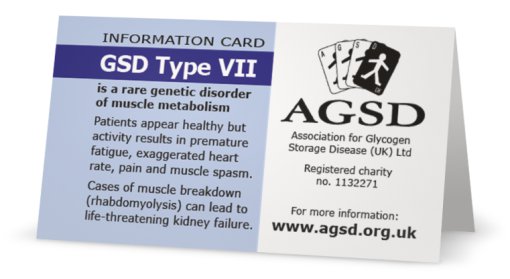
Information/Emergency cards
This is a folding for-page information card for anyone with GSD7. It is small enough to fit in a wallet or purse. Perhaps keep some on the dashboard of the car, in your desk at work, or in your briefcase or handbag. It is a quick way to explain the condition to people. The cards are credit card size.
The card is useful for those who get challenged over using disabled parking bays, or just want to explain their situation to someone they meet. That person can then keep the card and, should they wish, look up more information using the link to the website.
The blue section on front and back has a short explanation of the condition. The white section on the back has some pointers on the sort of assistance that might be needed. On the inside the card has guidance on what to do in event of an episode of rhabdomyolysis. It has a brief note for emergency doctors with a space for you to write in a name and/or phone number of a doctor who should be contacted in the event of an emergency.
The cards will not last indefinitely (they are paper not plastic) and anyway are meant to be given away.
